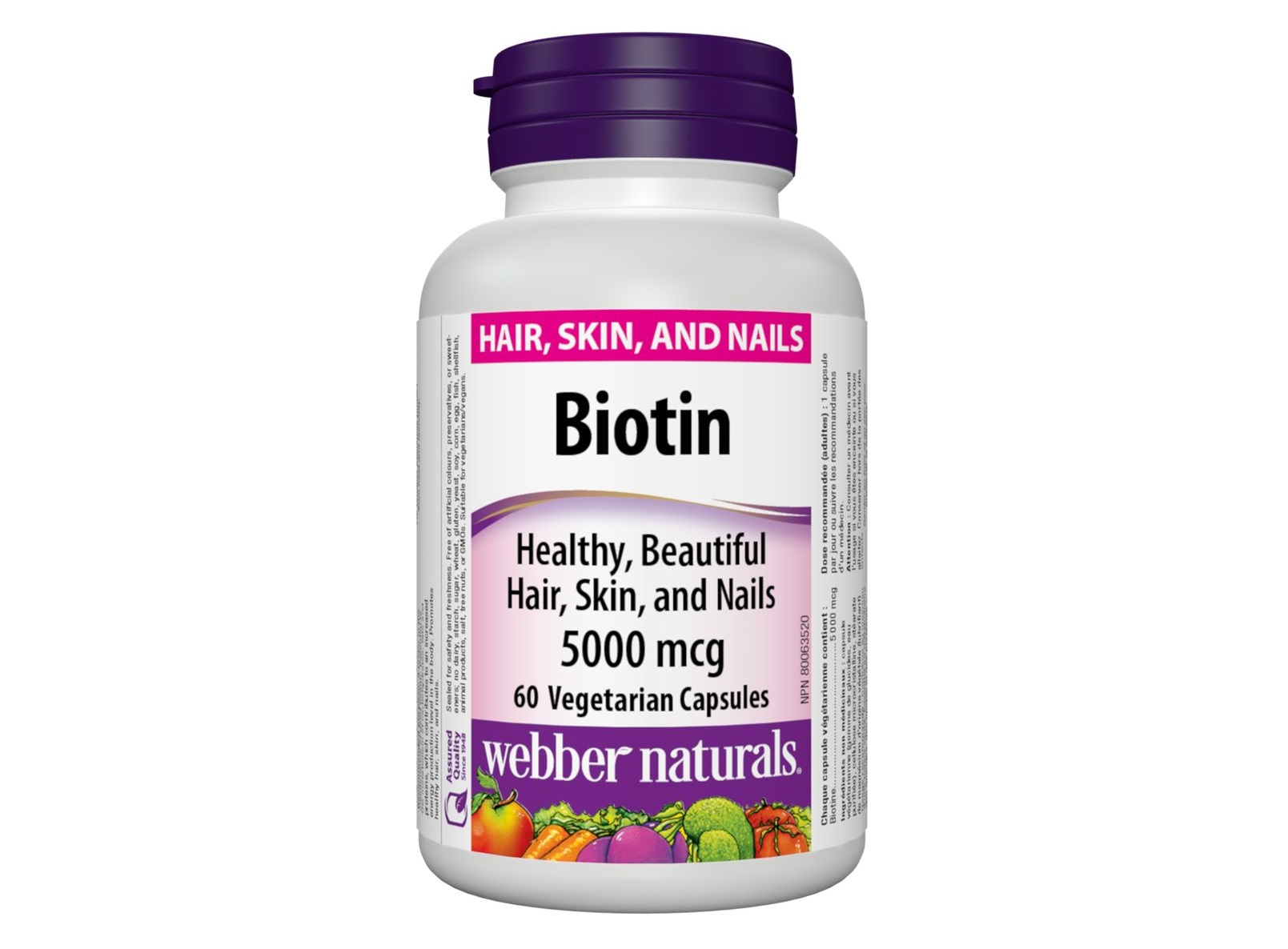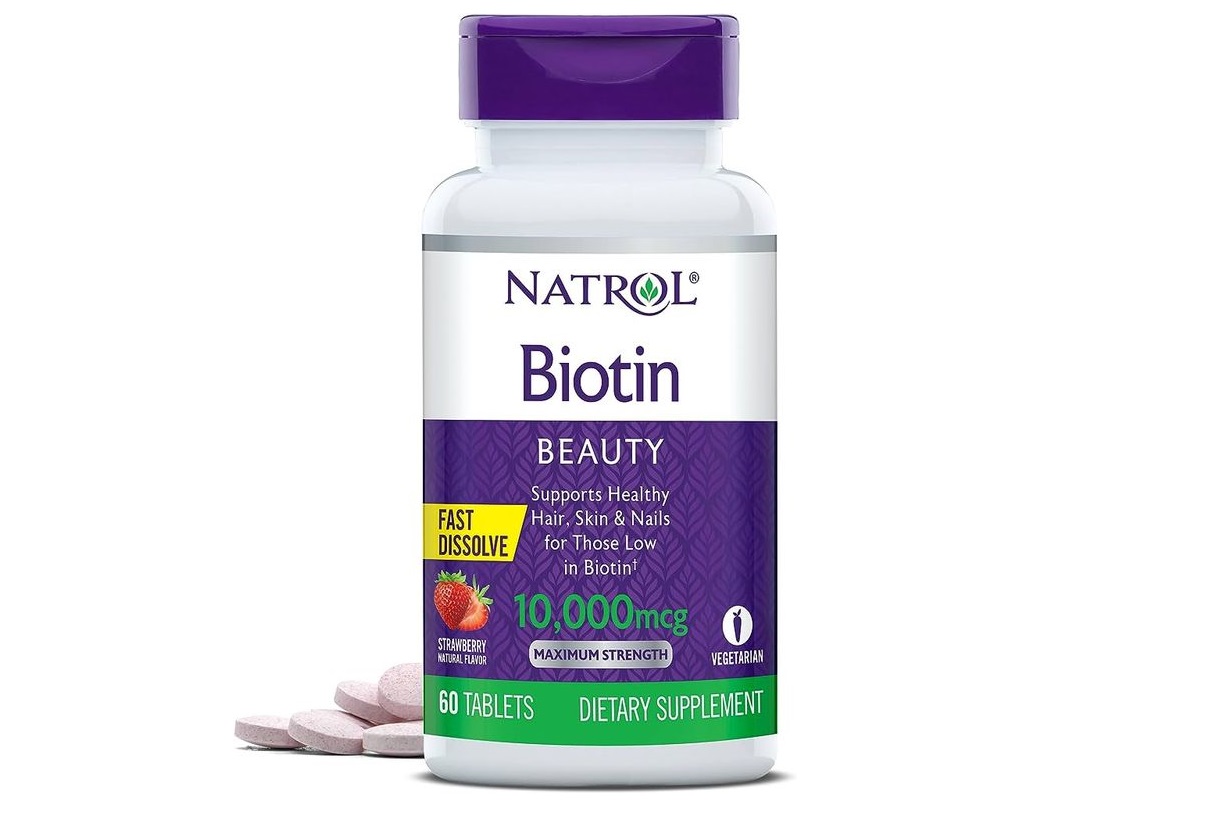Biotin, also known as vitamin B7, plays a pivotal role in helping our bodies convert food into energy. It’s a crucial nutrient that aids in the metabolism of fats, carbohydrates, and amino acids, the building blocks of protein.
As a society increasingly concerned with health and wellness, many people supplement with biotin, hoping to harness its reputed benefits for hair, skin, and nails.
In the realm of diet and nutrition, there’s a common inquiry: does biotin cause weight gain?
While it’s established as a metabolic booster, the idea that it might lead to weight gain is a subject of debate. Biotin itself doesn’t have fat-inducing properties, and it does not directly contribute to weight increase.
On the contrary, by supporting metabolism, it may aid in maintaining a healthy weight.
However, any supplement should be taken responsibly, and it’s important to understand that an imbalance—consuming more calories than what’s expended—could lead to weight changes, regardless of biotin intake.
Considering biotin’s benefits, it’s crucial to approach supplementation with the understanding that it’s not a one-size-fits-all solution.
Individual health, diet, lifestyle, and underlying medical conditions all play a part in how this vitamin functions in one’s body.
It’s helpful to consult with a healthcare provider to tailor the supplementation to one’s specific needs, ensuring that biotin is used effectively without misplaced expectations.
Reader's Roadmap
Key Takeaways
- Biotin is vital for energy production and doesn’t inherently cause weight gain.
- Proper metabolism facilitated by biotin may assist in maintaining a healthy weight.
- Individual factors and overall calorie balance are key in biotin’s role concerning weight.
Understanding Biotin and Its Functions
When you hear the word biotin, you might think of hair and nail supplements. But there’s more to this B vitamin—it’s crucial for energy production and plays a vital role in our metabolism.
What Is Biotin?
Biotin, also known as vitamin B7, is one of the B-complex vitamins that the body needs. It acts as a coenzyme—think of it as a helper—involved in the metabolism of fats, carbohydrates, and proteins. This essential vitamin is also key for maintaining healthy hair, skin, and nails, which is why you’ll often see it front and center in the beauty aisle.
Biotin’s Role in Metabolism
Metabolism is kind of a big deal—it’s how your body transforms the food you eat into the energy you need to function.
Biotin comes into play by supporting enzymes that break down substances in our body and help convert certain nutrients into energy.
Without adequate biotin, these metabolic processes can slow down or be less efficient, potentially leaving you feeling a little less than energetic.
Sources of Biotin in Diet
Biotin is that friendly nutrient that you can find in a variety of foods.
For the egg lovers, you’re in luck—eggs are a great source. If you’re more into seafood, salmon’s got your back.
Vegetarians, fear not: nuts, seeds, and some whole grains are good friends with biotin, too. And let’s not forget those colorful additions to our plates—carrots and bananas.
These foods not only taste good but also provide you with that all-important vitamin B7. It’s like nature’s little reminder to keep our meals diverse and full of colorful choices.
The Myth or Reality of Biotin and Weight Gain

Exploring the relationship between biotin and weight gain surfaces quite the debate.
On one hand, some individuals fear that taking biotin supplements could lead to weight gain; on the other, scientific studies have yet to firmly establish this connection.
Scientific Evidence on Biotin and Weight
The pervasive rumor that biotin supplements could lead to weight gain meets a significant barrier – scientific evidence.
Research and studies investigating biotin, a B complex vitamin essential for converting food into energy, consistently report that there is no direct link between biotin supplementation and an increase in weight.
Biotin assists in the metabolism of fatty acids, proteins, and carbohydrates, a process that is crucial for maintaining a steady energy supply rather than padding on the pounds.
Biotin’s Impact on Fat and Protein Processing
Let’s get into the nitty-gritty of how biotin factors into the metabolism of fats and proteins.
Biotin plays a part in enzymatic reactions that convert food into usable energy, specifically aiding enzymes that are key players in the synthesis of fatty acids and the breakdown of amino acids from proteins.
- It helps in the formation of glucose from non-carbohydrate sources, which means it has a hand in managing blood sugar levels rather than contributing to calorie excess.
- By preventing the accumulation of fat aptly, biotin is more a facilitator of healthy metabolism than a cause for swelling the waistline.
Despite misunderstandings, what one eats and their overall caloric balance play a far greater role in weight fluctuation than a biotin supplement ever could.
Foods are complex mixtures of carbohydrates, proteins, and fats, and merely adding biotin to the mix doesn’t translate to an increased appetite or a sudden spike in food intake.
In essence, biotin doesn’t trigger one to raid the fridge; it’s there to ensure that when they do, their body knows what to do with the nutrients.
Biotin Supplements: Benefits and Considerations
When venturing into the world of supplements, it’s vital to balance the potential benefits with any implications for your health.
Biotin supplements, usually taken for strengthening hair and nails, also play a role in metabolic processes, but they’re not without their considerations.
When Biotin Supplementation Is Needed
They come into play mainly when someone has biotin deficiency, which is relatively rare but can cause skin rashes, hair loss, and neurological issues.
Certain groups, like pregnant women, are at a higher risk and might need that extra bit of biotin to keep everything in check.
Those dealing with conditions affecting nutrient absorption, such as Crohn’s disease, may benefit, too.
Biotin is water-soluble, so the body doesn’t store it, making daily intake essential, which is usually fulfilled through a well-balanced diet.
Potential Side Effects and Risks
Biotin is generally safe, but moderation is key.
Excessive supplementation could lead to incorrect lab test results, especially thyroid tests, potentially masking a grave health issue. Some might experience digestive discomfort or allergic reactions.
And it’s always a good chat to have with your doctor, particularly if you’re on medications, as biotin can interfere, altering efficacy and safety.
Recommended Daily Amount and Safe Usage
For adults, the dosage hovers around 30 micrograms daily, while pregnant women might need a bit more to support fetal development.
When in doubt, stick to the recommended daily amount to avoid the rare occurrence of side effects.
Remember, the body excretes what it doesn’t need, but it’s about striking that balance between getting enough and not tipping the scales.
Always check with healthcare providers to tailor the amount to personal health conditions and nutritional needs.
How Biotin Affects Hair, Skin, and Nail Health
Biotin is more than just a supplement; it’s essential for maintaining healthy hair, skin, and nails. Let’s explore how this vitamin works its magic.
The Connection Between Biotin and Hair Growth
For those worrying about their hair, biotin is often a go-to remedy. It’s not a miracle worker, but biotin plays a key role—they need it for proper growth.
A deficiency might lead to hair loss, so maintaining adequate levels could help keep one’s hair lush.
Many believe that biotin supplements can support hair health, and while no decisive studies guarantee a transformation, they could offer a nutritional back-up for those lacking in their diet.
Effects of Biotin on Skin and Nails
Moving on to the skin, biotin’s benefits are subtle yet significant.
It’s involved in producing fatty acids that nourish the skin, ensuring it stays smooth and free of pesky skin rashes.
However, while biotin is important, a balanced diet is normally enough to avoid acne or other skin issues related to biotin deficiency.
For nails, biotin is like a caring friend helping them stay strong.
Brittle nails can be a sign that one’s not getting enough biotin. By upping their biotin intake, one might see their nails break less and endure more.
It’s not about getting superhuman nails, but about maintaining their natural strength and avoiding those annoying chips and cracks.
Addressing Common Concerns and Misconceptions

When it comes to biotin and its effects on weight, there’s a tangle of information out there. Let’s untie those knots and clear up the confusion with some straightforward talk about what science says.
Can Biotin Cause Weight Gain?
Biotin, a B-complex vitamin, is vital for energy production in the body.
Despite anecdotes, no strong scientific evidence suggests that biotin directly causes weight gain.
Some individuals believe that because biotin contributes to a more efficient metabolism, it might inadvertently increase appetite, but these claims lack substantial backing.
On the contrary, biotin is more often associated with potential benefits in the metabolism, which can aid rather than hinder weight management efforts.
Interactions with Other Medications and Conditions
Biotin does not smoke solo; it interacts with the body’s orchestra of nutrients and medications.
It is crucial to be aware of how biotin might react with other substances.
Some medications for epilepsy and certain antibiotics may affect biotin levels in the body.
As for medical conditions, while a deficiency in biotin can lead to issues like hair loss or skin rashes, there’s no clear link to obesity or heart problems due to excess biotin.
When starting biotin, especially at higher doses, keeping a healthcare provider in the loop is always a good call.
FAQs on Biotin and Weight Management
- Is biotin a magic pill for weight loss?No, biotin should not be regarded as a weight loss supplement. It plays an important role in the body’s conversion of food into energy but doesn’t directly translate to losing weight.
- Can taking biotin lead to obesity?There’s no evidence to suggest that taking biotin can lead to obesity. Weight gain usually results from a complex interplay between diet, lifestyle, and genetic factors.






